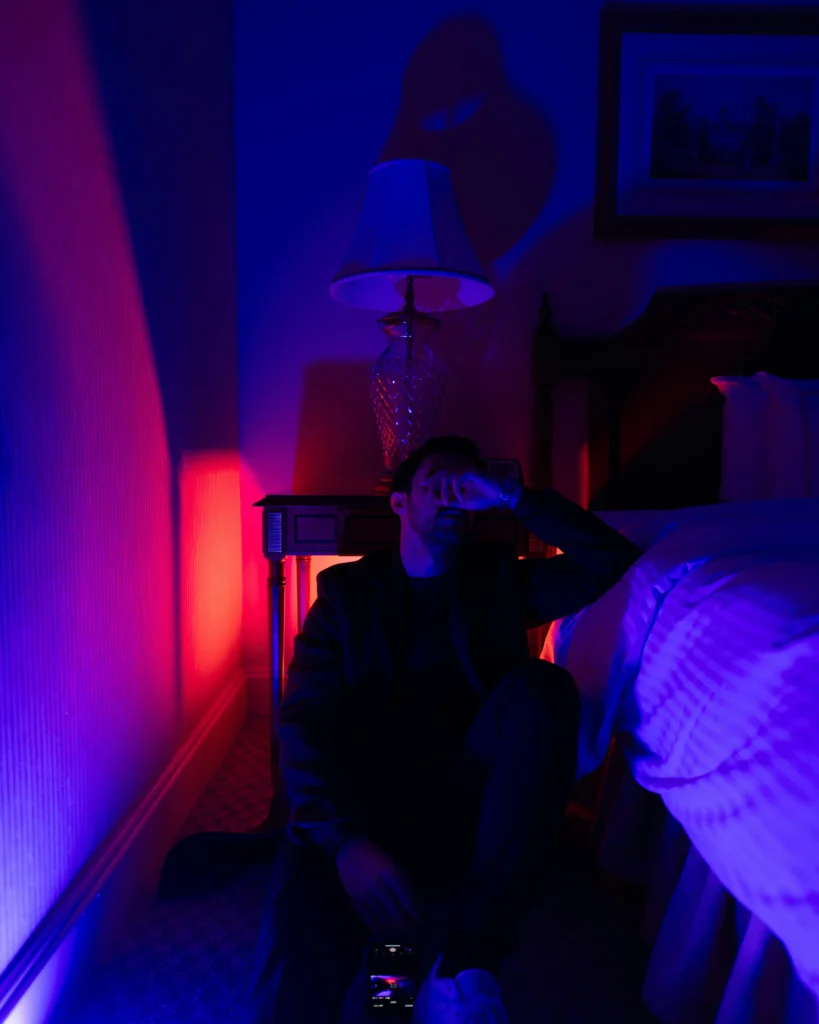Disclaimer: This content is for informational purposes only and should not replace professional medical advice.
Sleep and recovery for men is more than a trend — it’s a cornerstone of real gains. You train hard. You eat clean, maybe even wear a device that monitors your heart rate variability. But if you’re still treating sleep like a luxury — something you can “make up for” on weekends — it’s time for a serious reality check.
Staying up late is quietly destroying your physical progress. And it’s doing more damage than you think.
The Hormone You’re Undermining Every Night
Let’s talk testosterone. In a study from the University of Chicago, healthy men who slept only 5 hours a night for one week saw their testosterone levels drop by up to 15%. That’s the kind of decline you’d expect from a decade of aging — packed into seven days.
And that’s just the start. When sleep drops, cortisol (your stress hormone) spikes. Elevated cortisol blunts muscle growth, slows fat loss, and tanks your recovery. It also disrupts your ability to get quality sleep the next night. Welcome to the cycle.
You’re Not Nocturnal — Biologically Speaking

Some people claim they “work better at night.” Maybe. But biologically, you’re pushing against your own operating system.
Your circadian rhythm is designed to keep you active when it’s light and wind you down when it’s dark. When you stay up late under artificial light, scrolling, snacking, or working, you’re sending your body conflicting signals.
What happens next?
- Melatonin is delayed, making it harder to fall and stay asleep
- REM and deep sleep are shortened, which hurts recovery and memory consolidation
- Insulin sensitivity drops, increasing fat storage and energy crashes
- Growth hormone release is reduced, limiting muscular repair
Burning the midnight oil doesn’t make you a warrior. It makes you hormonally inefficient.
How Sleep and Recovery for Men Impacts Physical Gains
You’ve felt it: a bad night of sleep and your workout feels flat. But the damage goes deeper than energy levels.
1. Strength and endurance drop
Studies show that sleep deprivation reduces muscular power, time to exhaustion, and even motivation to train.
2. Muscle recovery slows
Deep sleep is when your body releases growth hormone and repairs micro-tears in your muscles. Skimp on sleep, and your body stays in “survival mode” instead of rebuild mode. And if key nutrients are lacking too, recovery slows down even more. Zinc and magnesium play a vital role in this process.
3. Body composition suffers
Sleep less, crave more junk. That’s biology. Ghrelin (your hunger hormone) increases, while leptin (your satiety hormone) drops. That post-leg-day pizza binge? Sleep debt is a factor. And if you’re relying on supplements to “make up for it,” you’re putting the cart before the horse. Here’s how to choose supplements that actually work.
Your Brain Pays the Price Too
Think you’re sharp on 5 hours of sleep? You’re not. Cognitive decline sets in fast — and here’s the kicker: the less you sleep, the worse you are at realizing how impaired you’ve become.
Your prefrontal cortex — the part of your brain responsible for decision-making, impulse control, and discipline — gets foggy fast. That means:
- More skipped workouts
- More poor food choices
- More rationalizations
You might think you’re being productive by staying up. In reality, you’re trading long-term gains for short-term busywork.
How to Optimize Sleep for Performance (Without Turning Into a Monk)
You don’t need a sleep lab or a Himalayan salt lamp. Just a few consistent habits:
1. Go to bed and wake up at the same time — even on weekends
Your circadian rhythm is a creature of habit. Respect it.
2. Kill the lights
Artificial light (especially blue light from screens) suppresses melatonin. After 9pm, switch to warm lighting or install blue-light filters.
3. Build a wind-down routine
Read a physical book. Stretch. Take a hot shower. Train your brain to shift gears before bed.
4. Cool and dark is king
Your bedroom should feel like a cave — cool (65–68°F), dark, and quiet. Blackout curtains and a fan go a long way.
5. Watch the caffeine
Caffeine has a half-life of 6–8 hours. That 4pm cold brew? It’s still in your system at midnight.
The Payoff of Prioritizing Sleep
Sleep isn’t downtime. It’s when the upgrade happens.
- Higher testosterone and lower cortisol mean more strength, energy, and mental clarity
- Better recovery lets you train harder and bounce back faster
- Sharper decision-making helps you stay consistent with diet, training, and work
- Improved body composition thanks to balanced hormones and lower cravings
This is the kind of ROI you won’t get from any supplement or training tweak.
Sleep Is the New Anabolic

There’s no pre-workout, no cold plunge, no “hack” that outperforms a full night of quality sleep.
Staying up late and under-sleeping is like building a high-performance engine on a shaky foundation. It might run fast — for a while — until it breaks under pressure.
But don’t take my word for it.
Try it.
Give yourself three days. Sleep 7–8 hours, at the same time each night. Cut caffeine after 2pm. Kill the lights early. Darken your bedroom. Watch what happens to your energy, mood, and strength.
Your body will let you know exactly what it’s been missing.
Make sleep your secret weapon — because your real gains begin the moment you close your eyes.
If this post saved you time, money, or prevented questionable life choices… you can tip below.
This article is for informational purposes only and is not a substitute for professional medical advice, diagnosis, or treatment. Always consult a qualified healthcare provider before making any decisions about your health or starting a new regimen.
Photos by Unsplash

